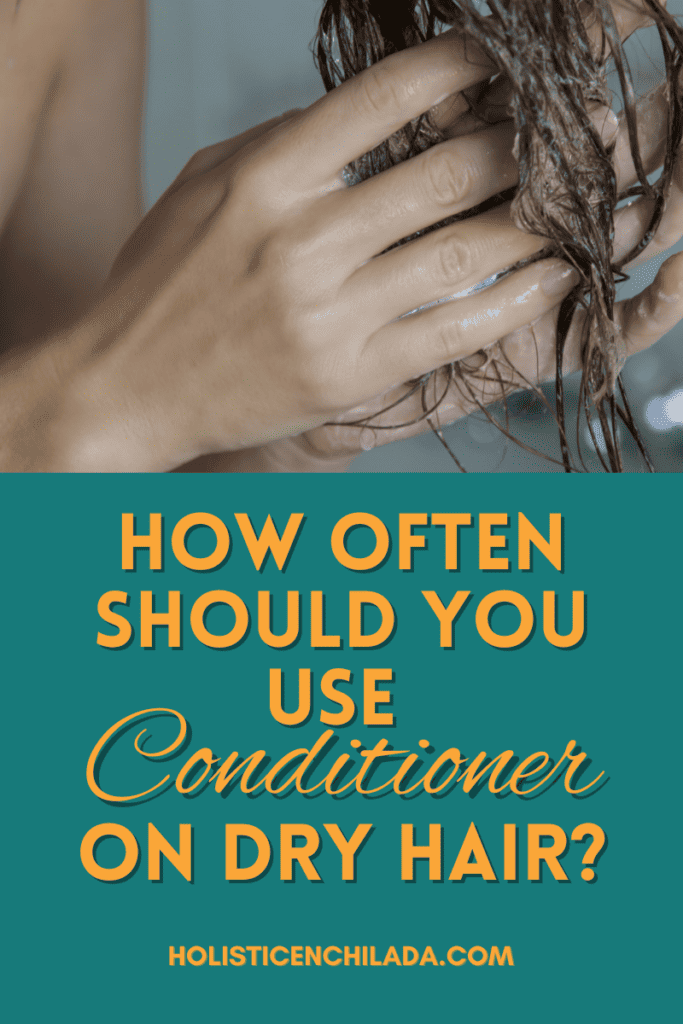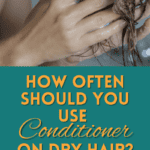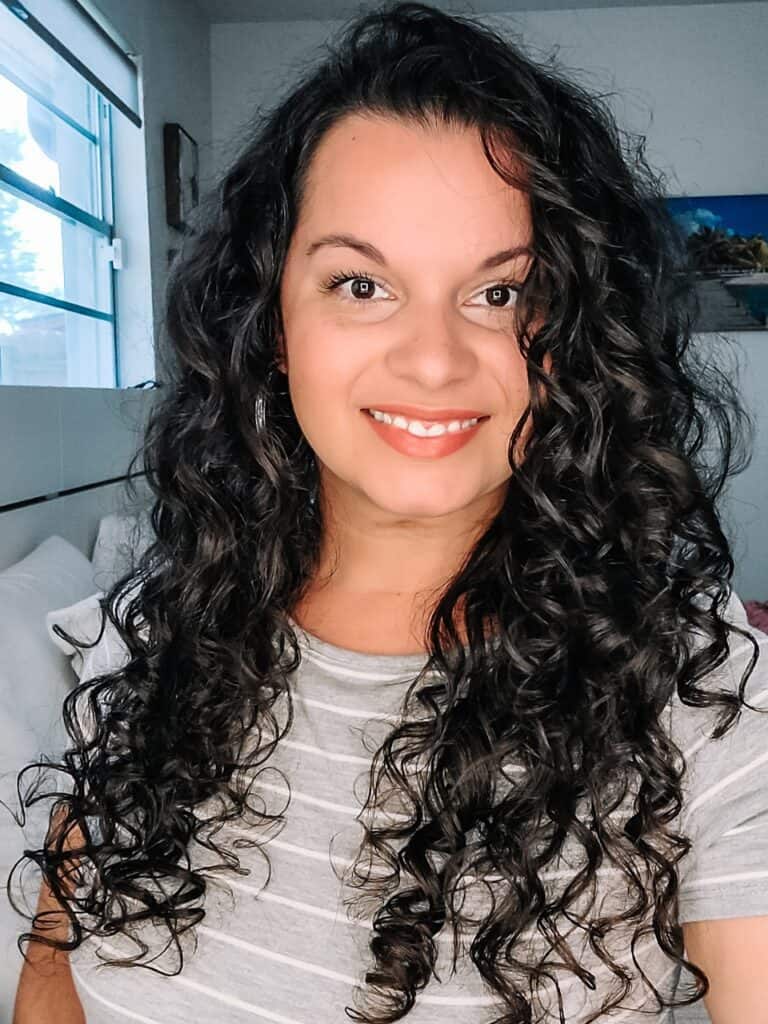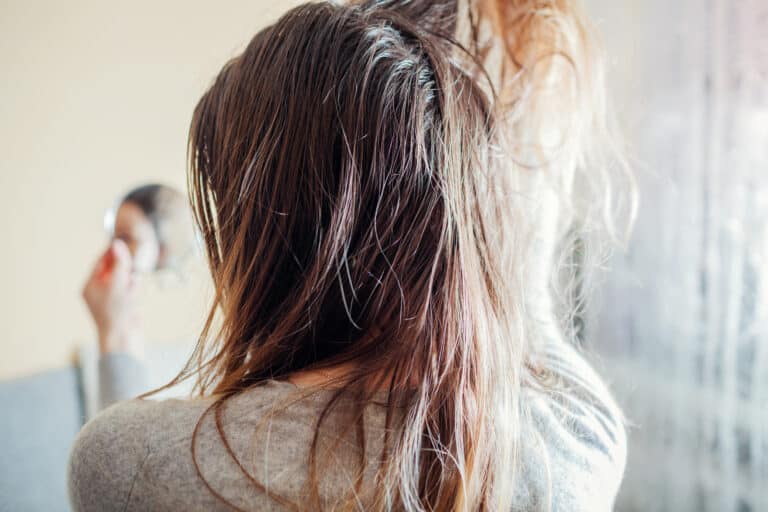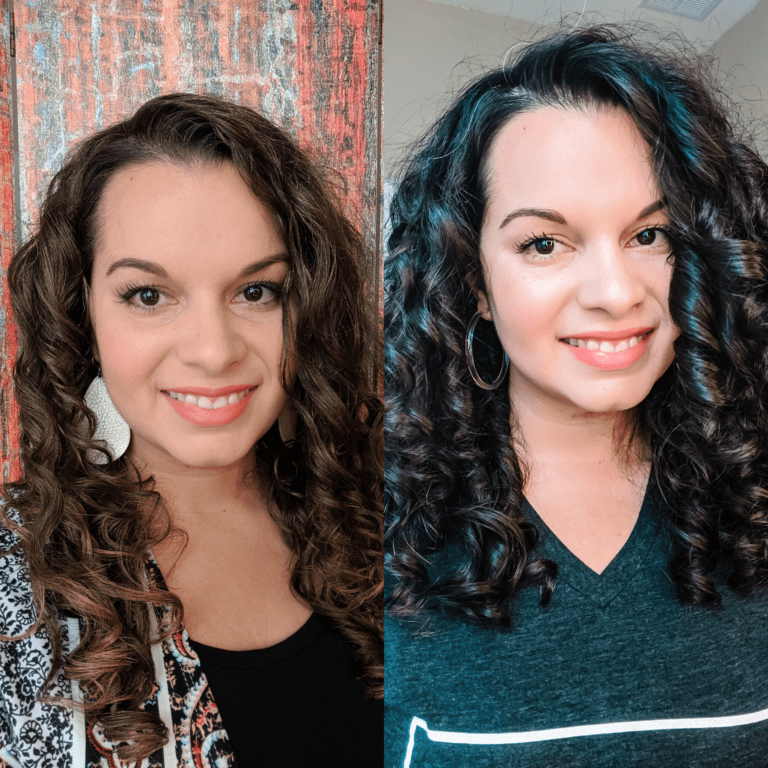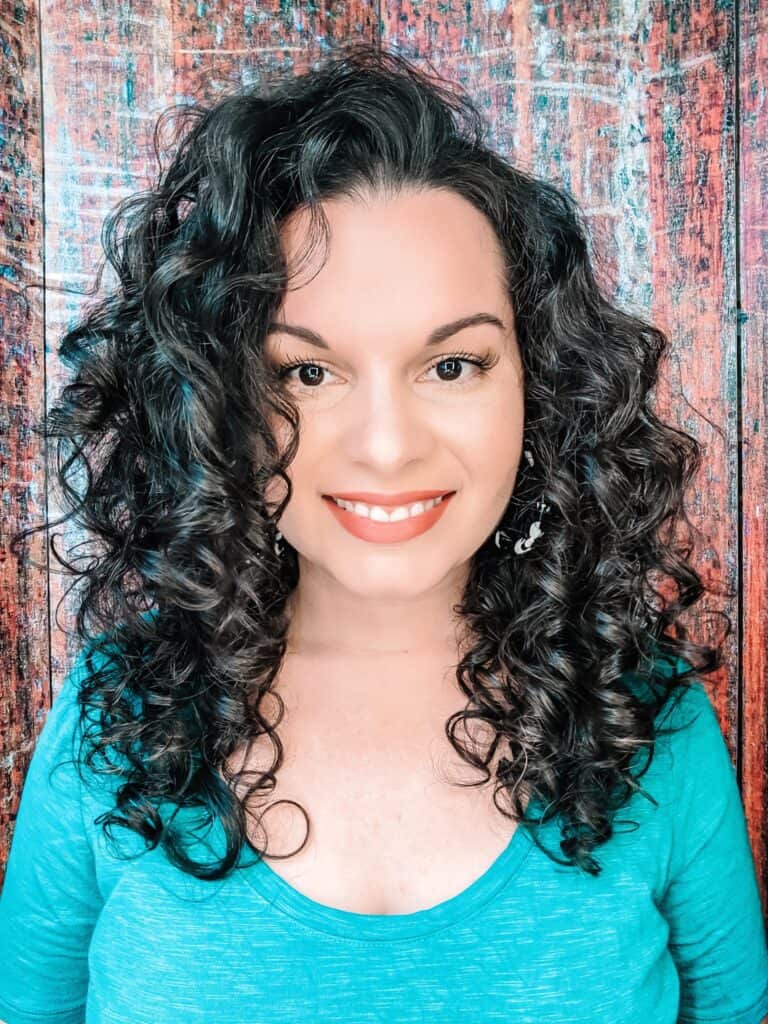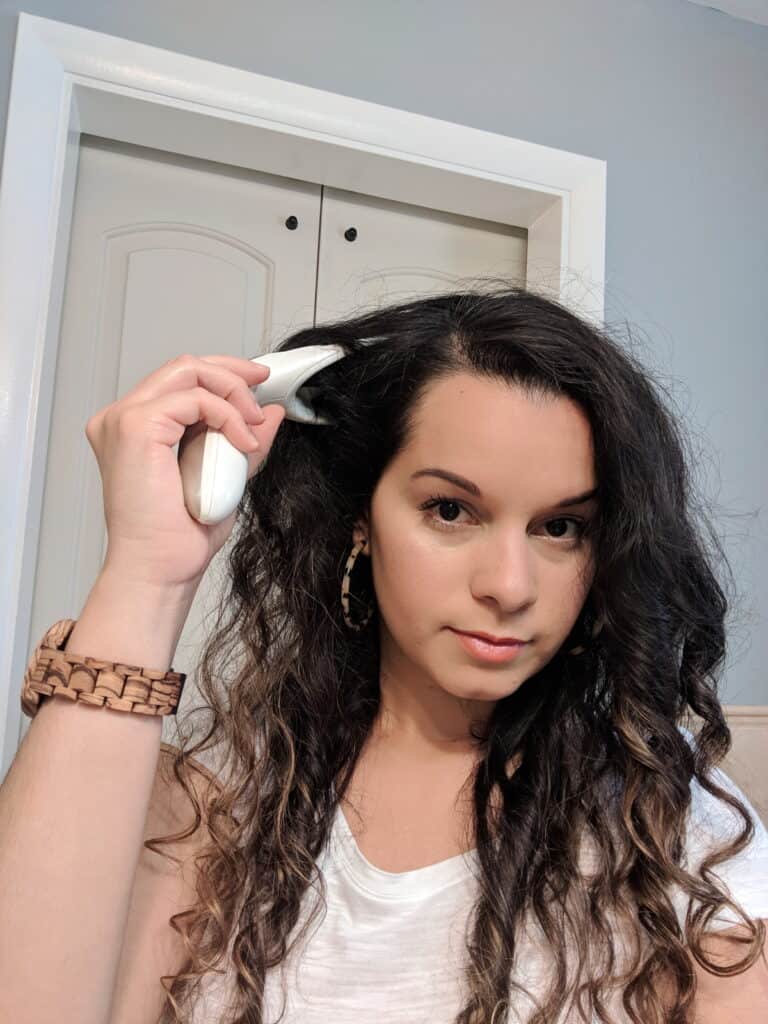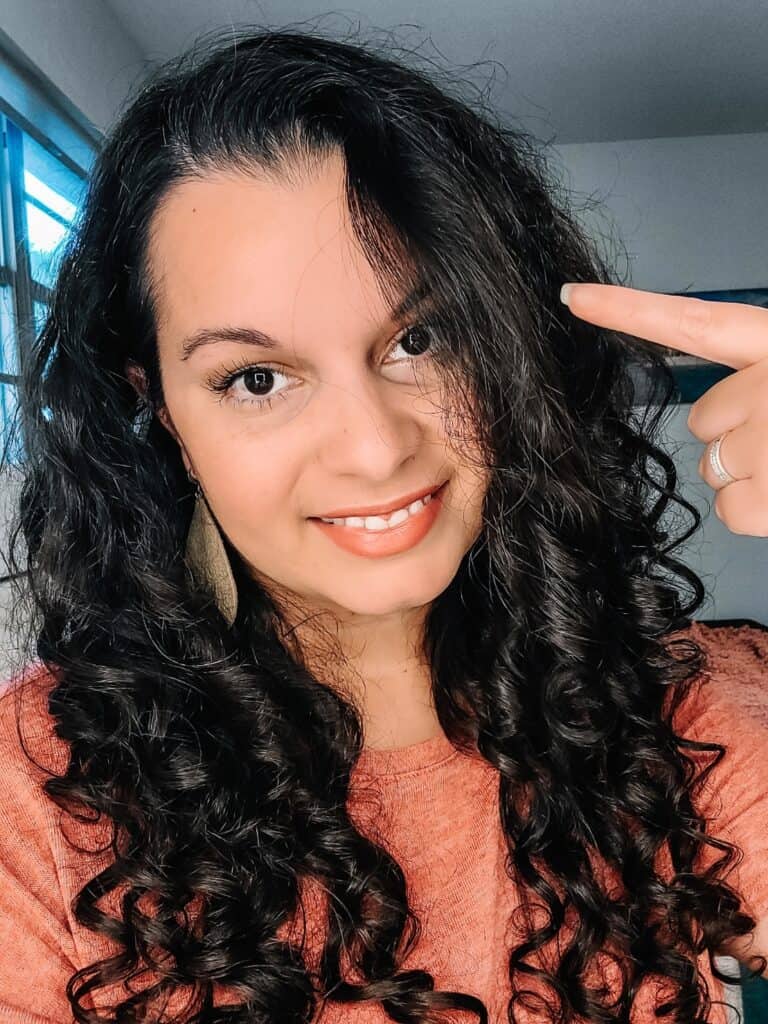How Often Should You Use Conditioner On Dry Hair?
This post may contain affiliate links, and I will earn a commission if you purchase through these links. Please read the disclosure policy for more details.
You’re probably already using a conditioner to make your hair softer and shinier. However, not all hair conditioners are the same, and using the right conditioner on dry hair is an essential part of achieving great-looking hair.
In fact, even when you’ve picked the right conditioner to suit your curly hair type, you need to know how often to condition your hair and how to apply the product to get the best results.
Conditioning your hair too much or applying conditioner to dry hair could do more harm than good, making it look flat and greasy. Use too little conditioner, and you risk dryness, frizz, and breakage.
So, this guide will help you get the best out of your conditioner. We’ll share some essential tips on how to choose the right conditioner, how often to use your conditioner, and how to apply it for beautifully healthy hair.
What Does A Conditioner Do?
When you wash your hair with shampoo, some of your hair’s natural oils are washed away with the dirt, product buildup, and other impurities. Following up with a rinse-out conditioner helps restore your hair’s lost moisture, making it smoother and softer.
You can think of a conditioner as a moisturizer for your hair. Conditioners generally contain cationic surfactants to help smooth your strands, together with oils and emollients to add moisture.
Some hair conditioners also contain silicones to add a protective layer that makes your hair look shiny and fights frizz. However, these silicones can quickly build up on your strands and leave curly hair looking weighed down, so you might prefer to avoid them.
If you decide to use a conditioner containing silicones, washing with a clarifying shampoo once or twice a month can help clear any buildup of hair products.
Is Conditioner Good for Dry Hair?
If you have naturally dry hair, or your hair has become dry through chemical treatments or heat styling, then conditioner is definitely something your hair needs.
A good hair conditioner will replace the moisture that can easily be stripped away by shampoos, chemical treatments like hair colors, and heat damage from hair dryers, styling tools, or even the sun.
Do You Apply Conditioner On Wet Or Dry Hair?
Regular rinse-out conditioners and deep conditioning treatments should be applied to wet or damp hair. Wetting your hair before you apply conditioner makes it easier to spread the product so that you don’t miss any strands and ensures your hair gets optimum moisture.
The exception is a leave-in conditioner, which is designed to be left on your locks until the next time you wash it.

How Often Should You Condition Your Hair If It’s Dry?
The answer to this question depends on the type of conditioner you’re using.
Rinse-out conditioner
This is what typically comes to mind when people think of conditioner. You apply it after shampooing your hair and then rinse it out after a minute or two.
The American Academy of Dermatology (AAD) recommends using a rinse-out conditioner every time you shampoo your hair, whether that’s every day or just once or twice a week.
If your hair is very dry, coarse, or damaged by heat or chemicals, you might need to condition it more frequently for additional moisture. However, it’s always essential to apply the conditioner on wet hair so it can work its magic on your dehydrated tresses.
Using the right conditioner, in the right way, will help promote strong hair that looks and feels fabulous.
Read more: 10 Best Conditioners for Curly Hair
Leave-in conditioner
As the name says, a leave-in conditioner remains on your hair until your next wash day. Unlike the other types of conditioners, you can use this product on dry hair every day, especially if you’re using it as part of the LOC method or LCO method.
When I first started wearing my hair curly and it was really damaged, I used diluted leave-in conditioner to refresh my hair in the mornings.
This is the only type of conditioner that doesn’t need to be applied to wet hair.
Read more: 10 Best Leave-in Conditioners for Curly Hair
Deep conditioner
Deep conditioners are applied to wet hair and left on your strands for longer, from 30 minutes up to several hours. They’re ideal for hydrating very dry and damaged hair, and you can use them once or twice a month, depending on your hair’s condition.
Read more: 10 Best Deep Conditioners for Curly Hair
Cleansing conditioner
A cleansing conditioner is a special product that replaces shampoo and can both cleanse and condition hair.
They tend to be lighter than a standard conditioner, and you can use them as frequently as you’d ordinarily use shampoo. However, you might find that they don’t hydrate thirsty locks as effectively as a regular conditioner.
Read more: Cowashing Guide for Curly Hair
What Happens If I Leave Conditioner On For Too Long?
Using the wrong type of hair conditioner, leaving it on too long, or conditioning too often can cause over-conditioning. The symptoms of this include:
- Oily hair and scalp
- Loss of volume and bounce
- Problems using heat styling tools
If this happens, simply use less conditioner or condition your hair less frequently until you find the right balance for your locks.
Under-conditioning is the opposite problem: when you don’t condition frequently enough or wash your conditioner out too quickly. The signs of under-conditioning include:
- Dull, dry, and brittle hair strands
- Excessive tangles, split ends, and breakage
- Frizzy hair
If this happens, try leaving your hair conditioner on a little longer before washing it out or applying it more often. A regular deep conditioning treatment can also help.
Can I Leave Hair Conditioner On Overnight?
Leaving a regular hair conditioner on overnight can make your hair very oily and cause product build up on your scalp and hair strands. It could even lead to conditions like scalp acne or blocked follicles.
If you want to give your tresses a little extra moisture, it’s better to use a deep conditioning treatment. You could also try using penetrating oils like coconut oil or olive oil that you can safely leave on your hair for a few hours.
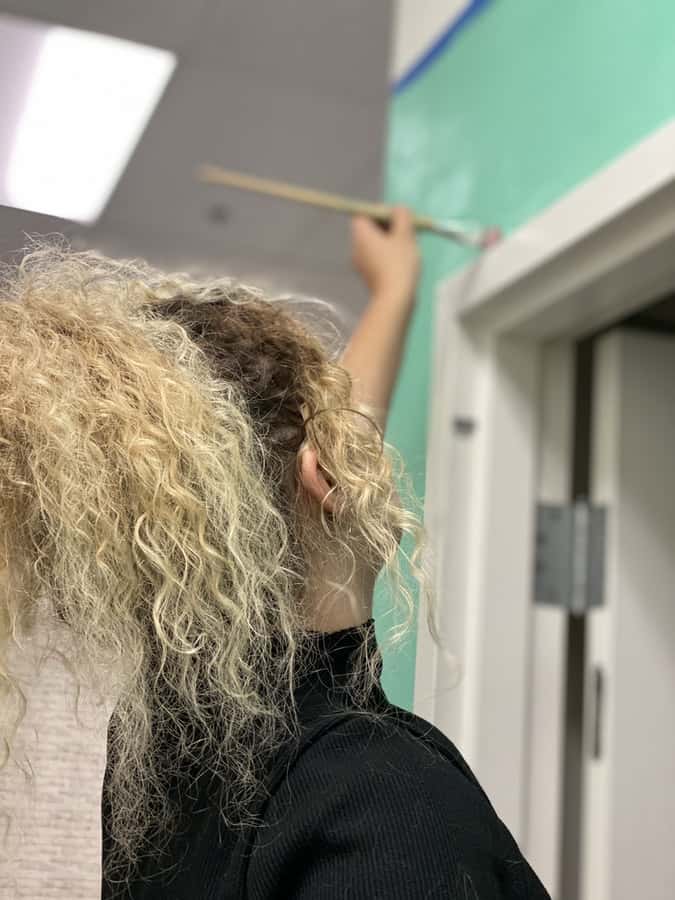
How to Choose the Best Conditioner for Dry Hair
Picking the right conditioner means assessing what type of hair you have. You also need to consider any specific needs, for instance, if you have color-treated hair or frizz.
Start by answering the following questions:
- What hair type do you have?
- Do you have dry, normal, or oily hair?
- Do you have high or low hair porosity?
- Is your hair dense or thin?
- Has your hair been treated with chemicals like relaxants or colors?
- Do you use hot styling tools frequently?
Answering these questions will help you identify your hair’s specific needs, and then you can look for a product designed to deal with them.
Our Recommendations for Dry Hair Conditioner
Different hair types have different hydration needs, so choosing a hair conditioner that suits your specific hair type is always important. You’ll find some great recommendations in our Hair Texture Guides.
How can you tell the difference between hair types? Our quick Curly Hair Type Quiz makes it easy to understand your hair type and choose the right products.
How to Properly Use Conditioner
Using your hair conditioner properly is just as important as picking the right product. Here are some simple steps for getting the most out of your hair conditioner:
Shampoo your hair first
Always wash your hair with shampoo first and rinse well with warm water. Using your conditioner on dry hair could do more harm than good, as it will just sit on the outer layer of the hair shaft.
This will stop the hair from absorbing any of that juicy hydration and make your hair look greasy. It also causes product buildup on your scalp and hair, and one of the most important factors in healthy hair is a healthy scalp!
Don’t use too much
Most hair types don’t need a massive amount of conditioner, so apply a quarter-sized amount at first and only add more if it’s needed. You might need a smaller amount if you have very thin or fine hair.
Avoid your roots and scalp
Applying conditioner to the roots of your hair will make it look limp and flat, so only condition the mid length and ends of your strands. If your hair’s very long, thick, or curly, sectioning it first can help.
Let it rest
Leave the conditioner on your hair for as long as stated in the product instructions, as leaving it on for too long can make your hair oily. This is a good time to detangle your hair gently.
Rinse with warm water
To avoid product buildup, always use warm water to rinse the conditioner out of your hair properly.
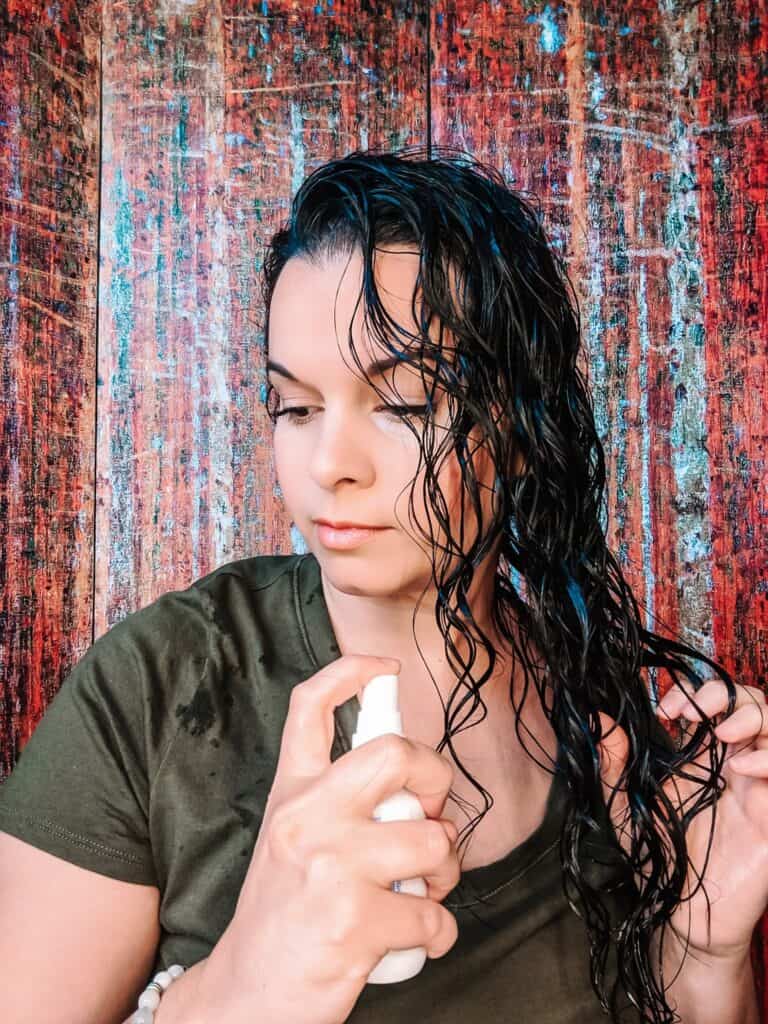
FAQs
Still looking for more info about conditioning your hair? These frequently asked questions will help!
Can I Use Regular Conditioner as a Leave-in Conditioner?
No, the formulations of these two hair care products are different, so you could risk product buildup if you don’t rinse out a regular conditioner.
How Long Can I Leave Conditioner on my Dry Hair?
For the best results, you should follow the instructions on your conditioner’s packaging, which usually involves leaving the conditioner on for up to 5 minutes.
If your hair is very coarse or dry, you could try leaving it on for an extra minute or so for extra hydration, but check how your hair reacts to this. And always remember that regular conditioners should only be applied to wet or damp hair, never to hair that is dry.
Should I Apply Conditioner to the Roots of Dry Hair?
Applying conditioner to your roots can make your hair look greasy and weighed down. It’s best to only apply conditioner from the mid-lengths down to the tips, where the hair shaft tends to be drier.
Can Using Conditioner Help With Frizz Control?
Conditioner is great at fighting frizz. If you find that it isn’t helping, it might be because your hair wasn’t wet enough when you applied it.
Conclusion
How often you need to condition your hair depends on your hair type and whether it has any specific moisture needs.
Generally speaking, if you have healthy hair, it’s best to use a rinse-out conditioner every time you shampoo your hair, which could be anything from once a week to every day. However, never apply rinse-out conditioners to dry hair, as it will result in flat, oily hair and could damage your scalp.
If you have very dry or damaged hair, you should condition it more often. You can also add a leave-in conditioner or deep conditioner to your hair care routine for a little extra moisture.
Once you find the right conditioner to suit your locks and work out the perfect shampoo and conditioner routine, you’ll be rewarded with gorgeously soft and shiny hair!
